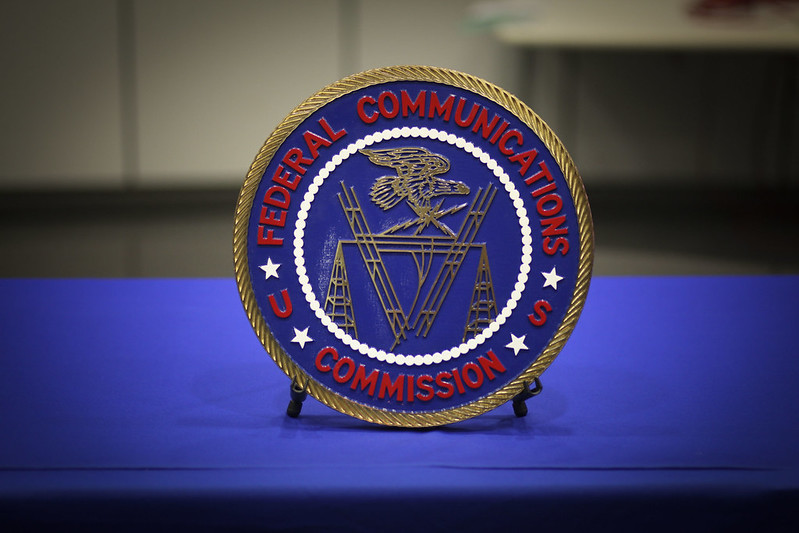Latest News
FCC Proposes New Sat-to-Cell Regulatory Framework to Work Toward a ‘Single Network Future’

Federal Communications Commission seal. Photo: Creative Commons license/jeanbaptisteparis via Flickr
The FCC proposed a new regulatory framework at its March meeting to facilitate satellite-to-cell service and collaboration between satellite operators and wireless companies — part of the Commission’s “single network future.”
The Commission adopted a previously released notice of proposed rulemaking (NPRM) during the March 16 meeting, with all four commissioners voting to adopt. It deals with allowing satellite operators to get FCC authorization to operate satellites using terrestrial spectrum. The Commission is also proposing to add a mobile-satellite service allocation on some terrestrial flexible-use bands.
“This would allow a satellite operator to partner with a terrestrial mobile licensee to get access to their terrestrial spectrum through a lease arrangement and modification to the satellite operator’s license. Then the satellite system can provide service directly to the subscribers of the wireless carrier in areas where the carrier lacks coverage,” FCC Chairwoman Jessica Rosenworcel said in a statement.
An NPRM is part of FCC rule-making process, which proposes changes to the commission’s rules and seeks public comment on these proposals. NPRM’s are followed by a report and order, in which the commission would develop new rules.
The FCC will also seek comment on how this framework can support emergency response systems, and whether the framework can be extended to other bands, locations, and applications.
Rosenworcel called it part of the Commission’s vision of a “single network future,” in which fiber networks, terrestrial wireless systems, next-generation unlicensed technology, and satellite broadband work together seamlessly to “connect everyone and everything around us,” Rosenworcel said in a statement.
“By providing clear rules, I believe we can kick start more innovation in the space economy while also expanding wireless coverage in remote, unserved, and underserved areas. We can make mobile dead zones a thing of the past. But even better, we have an opportunity to bring our spectrum policies into the future and move past the binary choices between mobile spectrum on the one hand or satellite spectrum on the other,” Rosenworcel said.
Satellite-to-cell is a major topic in the satellite industry as telcos and device and chip manufacturers like T-Mobile, Apple, and Qualcomm strike deals with satellite operators to provide satellite-to-cell service.
The NPRM has bipartisan appeal, and Republican Commissioners Brendan Carr and Nathan Simington, along with Rosenworcel’s fellow Democrat Geoffrey Starks, released their own statements.
“The item we adopt today recognizes that consumers don’t care whether the signal was beamed to their device from a tower on top of an office building or from a satellite orbiting the Earth,” Commissioner Carr said in a statement. “They only care that they have access to an affordable, high-quality connection. Space mobile services, like those envisioned by this item, will help extend coverage even further across the country to keep consumers connected across rural and remote areas.”
Get the latest Via Satellite news!
Subscribe Now